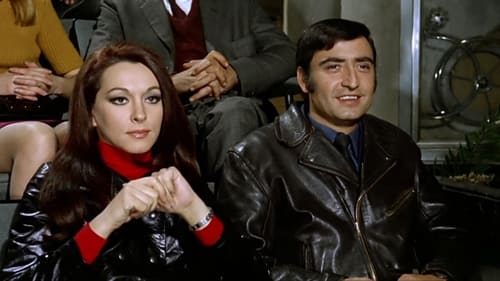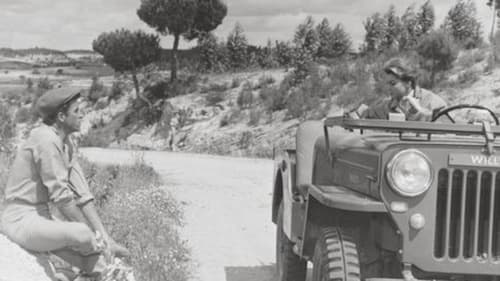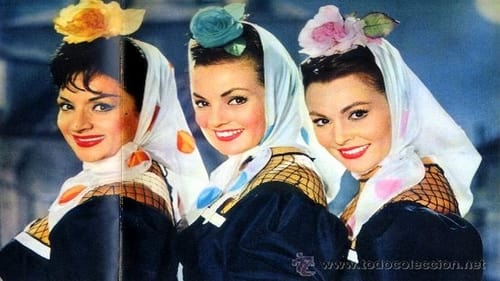Tono
出生 : 1896-09-22, Jaén, Jaén, Andalucía, Spain
死亡 : 1978-01-04

Writer

Antonio de Lara 'Tono'

Writer

Writer
Arturo, who has just turned 15, is in love with 13-year-old Paloma. In a moment of passion at a ski lodge while on a field trip to the mountains with their schoolmates, he gets her pregnant. Afraid of what may happen to them if their strict (but somewhat inattentive) parents or any of the rather straight-laced teachers at their Catholic school find out about the baby, Arturo and Paloma turn to their young friends and relatives for help instead. This proves to be something of a coming-of-age for everyone involved as they try to help the young couple get married, conceal the pregnancy from their parents, and prepare for the birth. The many adventures they have while doing this, while often amusing, help drive home to them that the old wives' tale about storks bringing babies is just a myth (hence the title), and pregnancy and childbirth are actually very serious matters.

Additional Dialogue

Writer

Writer
Inspired by the American gangster films, a group of thugs decides to dock the Bank of Spain. "El Rubio" explains to his men that, to commit the armed robbery, they will have to dig a gallery in the Cibeles. But, due to the threats of a rival band, "El Rubio" decides to disguise itself and pretend to be one of the most famous actors of the moment.

Screenplay
A financier decides to take a vacation somewhere where nothing can disturb him. He travels to the south of Spain, to a small village where he lives a primitive life. A chance meeting with a young American sociologist who works to guide women towards a healthier and more comfortable life change the pace of his life.

Additional Dialogue

Writer

Writer
Tom Rodriguez, a young cowboy, arrives in Torrejón City. However in Torrejón City the unsuspecting Tom is mistaken for the famous outlaw Tim El Malo and the people want to lynch him.

Writer

Writer
An anthology film centered around a film company called Tiacapa.

Writer

Director

Writer

Lyricist
Enriqueto, the proud owner of a splendid mustache, feels his heart divided between the kindly Manolita and the feckless Lilí. (A redubbed version of the Austrian film Immortal Melodies —Unsterbliche Melodien, 1935—, an operetta based on the life of the Austrian composer Johann Strauss, the Waltz King; with a new humorous plot and new music and songs. The original soundtrack was lost around 1949; only a 2014 subtitled version is preserved.)

Dialogue
Enriqueto, the proud owner of a splendid mustache, feels his heart divided between the kindly Manolita and the feckless Lilí. (A redubbed version of the Austrian film Immortal Melodies —Unsterbliche Melodien, 1935—, an operetta based on the life of the Austrian composer Johann Strauss, the Waltz King; with a new humorous plot and new music and songs. The original soundtrack was lost around 1949; only a 2014 subtitled version is preserved.)

Screenplay
Enriqueto, the proud owner of a splendid mustache, feels his heart divided between the kindly Manolita and the feckless Lilí. (A redubbed version of the Austrian film Immortal Melodies —Unsterbliche Melodien, 1935—, an operetta based on the life of the Austrian composer Johann Strauss, the Waltz King; with a new humorous plot and new music and songs. The original soundtrack was lost around 1949; only a 2014 subtitled version is preserved.)

Director
Enriqueto, the proud owner of a splendid mustache, feels his heart divided between the kindly Manolita and the feckless Lilí. (A redubbed version of the Austrian film Immortal Melodies —Unsterbliche Melodien, 1935—, an operetta based on the life of the Austrian composer Johann Strauss, the Waltz King; with a new humorous plot and new music and songs. The original soundtrack was lost around 1949; only a 2014 subtitled version is preserved.)

Writer
Min, a hard-boiled proprietress of a waterfront hotel, who has as her sweetheart Bill, a fisherman, brings up Nancy, a girl who was deserted by her own mother in infancy. However the Local authorities are trying to persuade Min that she is not a fit mother and that Nancy should be sent to school.








